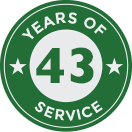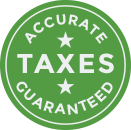Why are clergy subject to Self-employment tax
Clergy are subject to self-employment tax because their earnings from ministerial services are considered self-employment income under the Self-Employment Contributions Act (SECA). This classification is based on several key provisions and interpretations of the Internal Revenue Code and related regulations. Definition of Net Earnings from Self-Employment: According to § 1402(a) of the Internal Revenue Code, “net earnings…
Donation of public traded securities
To facilitate the donation of publicly traded securities to your church, the process involves several steps to ensure compliance with IRS regulations and maximize the donors’ tax benefits. Here’s a guide on how to handle such a donation: Establish a Brokerage Account for the Church Open an Account: The church should set up a brokerage…
IRS warns taxpayers of charity scams following recent hurricanes
In the aftermath of Hurricanes Milton and Helene, the Internal Revenue Service today cautioned taxpayers of scammers who use fake charities to gather sensitive personal and financial data from unsuspecting donors. IRS Article Scammers commonly set up fake charities to take advantage of peoples’ generosity during natural disasters and other tragic events. “Many people want…
Church Meal Expense Reimbursement Guidelines
All meal expenses for church pastors and staff should not automatically be reimbursed. The reimbursement of meal expenses must comply with specific IRS guidelines to ensure they are deductible and not considered taxable income. Here are the key considerations: Business Connection: The meal expenses must have a direct business connection. This means the expenses must…






